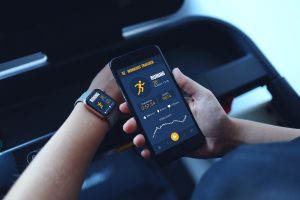Physical inactivity is a silent killer, accounting for 6% of all deaths globally and significantly increasing the risk of non-communicable diseases such as breast and colon cancers. The World Health Organization (WHO) emphasises that regular physical activity is essential for enhancing psychological health, improving daily functional activities, and reducing symptoms of depression and anxiety.
Despite these well-documented benefits, a recent study reveals a concerning trend among Malaysian young adults: a significant portion are not actively monitoring their physical activity. Led by Rajkumar Krishnan Vasanthi, Head of Programme and Senior Lecturer at the Faculty of Health and Life Sciences, INTI International University, the study provides crucial insights into the physical activity monitoring (PAM) habits of young adults in Malaysia.
The study surveyed 400 participants aged 25 to 29 through an online questionnaire and reported that 61% of participants regularly monitor their physical activity, with smartwatches being the preferred devices. However, 39% of young adults do not engage in regular physical activity monitoring.

The study surveyed 400 participants aged 25 to 29 through an online questionnaire and reported that 61% of participants regularly monitor their physical activity, with smartwatches being the preferred devices.
Rajkumar, via the research, highlights, “While the adoption of smartwatches and other wearable technology for physical activity monitoring is promising, a significant portion of young adults still do not monitor their physical health regularly. This gap presents an urgent need for increased awareness and educational efforts.”

Rajkumar Krishnan Vasanthi, Head of Programme and Senior Lecturer at the Faculty of Health and Life Sciences, INTI International University.
Wearable devices have revolutionised health tracking by making monitoring daily steps, heart rate, and overall fitness levels easier. These tools provide essential data and motivate users to engage in regular physical activities such as jogging or exercising, which are crucial for maintaining health and well-being.
Technology integration in health practices is increasingly significant, with smartwatches playing a central role in encouraging physical activity among young adults. However, the substantial number of young adults not engaging in regular physical activity monitoring emphasises the need for ongoing public health campaigns to promote healthier lifestyles.
Based on the research findings, Malaysian young adults who have managed to monitor their physical activity resort to jogging regularly, a low-intensity type of physical activity, followed by cycling and swimming.
Increasing awareness and educational efforts are urgently needed to bridge the gap in physical activity monitoring among young adults. As work habits within young adults consume more of their waking hours, it’s time for us to wake up and get healthy for a fitter future.